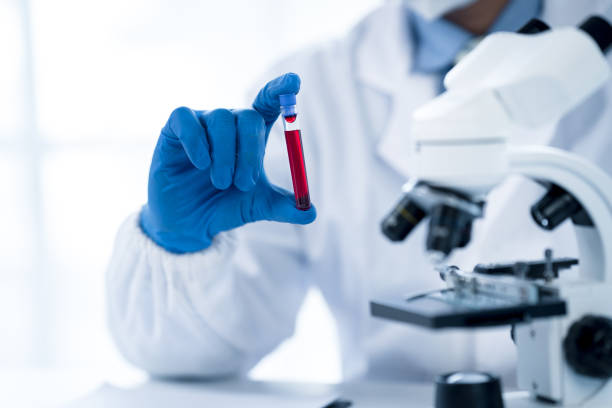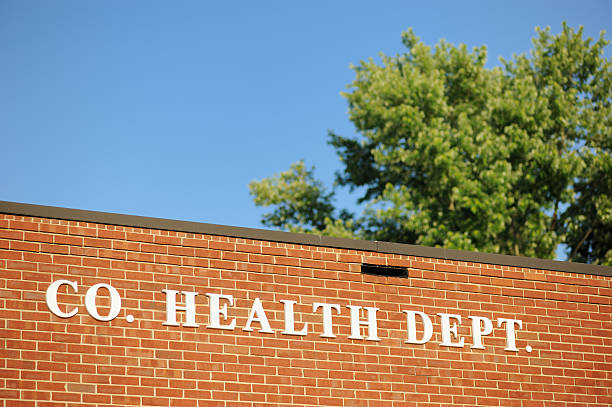
When Pregnant, When Do You Get Your First Ultrasound?
A mother’s joy begins when new life is stirring inside, when a tiny heartbeat is heard for the first time, and a playful kick reminds her that
STDs, or Sexually Transmitted Diseases, are infections primarily passed from one person to another during sexual contact. Bacteria, viruses, or parasites may cause these diseases, ranging from prevalent conditions such as chlamydia and herpes to less common ones like syphilis and HIV.
Testing for STDs is critical for anyone sexually active, as many of these diseases can be asymptomatic, meaning they show no visible symptoms. Regular STD testing allows for early detection and treatment, minimizing potential harm to one’s health and preventing the spread of the disease to others.
Many health facilities, community health centers, and even some pharmacies offer free or low-cost STD testing, making it accessible for most individuals.
Choices Women’s Clinic is one example of a facility that provides STD testing. They offer all tests, including chlamydia, syphilis, gonorrhea, and HIV/AIDS. They also provide breast cancer screenings and other women’s health services. This blog post will explain exactly what you must do to receive free STD testing at Choices Women’s Clinic. Let’s get started.
Sexually transmitted diseases (STDs) are infections that can be transmitted from person to person through sexual contact. Bacteria, viruses, or parasites can cause them. STDs encompass many conditions, from common ones like chlamydia and herpes to less prevalent infections like syphilis and HIV.
It’s important to note that many individuals may not exhibit visible symptoms of STDs, underscoring the significance of regular STI testing for anyone sexually active.
The history of STDs can be traced back to the ancient Greeks and Romans, who associated them with immoral behavior. In the late 19th century, microbiology was in its infancy, and scientists were just beginning to understand the mechanisms behind these diseases. By the middle of the 20th century, penicillin had been discovered and was used to treat a wide range of infections, including STDs.
Understanding the symptoms of sexually transmitted diseases (STDs) is crucial in the early detection and treatment of these conditions. STD symptoms can vary widely, depending largely on the type of disease. Common symptoms that may indicate an STD include:
This might be a sign of gonorrhea, chlamydia, or trichomoniasis. The discharge may have an unusual color, consistency, or smell.

This could be symptomatic of a urinary tract infection and STDs such as chlamydia and gonorrhea.
These could be symptomatic of herpes or syphilis.
This could indicate the presence of an STD such as genital herpes, genital warts, or trichomoniasis.
These symptoms could indicate an STD or other conditions such as pelvic inflammatory disease.
These might include fever, fatigue, headache, muscle aches, or swollen lymph nodes, which could be a sign of HIV positive or syphilis.
Deciding when to get tested for STDs depends on several factors, including your sexual behavior, your sexual partners, your age, and overall health. Here are some general guidelines:
If you are sexually active, especially with multiple partners, getting tested regularly, perhaps every 3-6 months, is a good idea.
It is sensible to get tested before you start a new sexual relationship to protect both you and your new partner.
If you experience any of the symptoms mentioned above, it is essential to get tested immediately.
If you have had unprotected sex, getting tested is crucial, even if you don’t have symptoms.
If your sexual partner has tested positive for an STD, it is essential to get tested.
This age group is particularly at increased risk for chlamydia and gonorrhea. Annual screening is recommended.
STD testing refers to the procedures used to detect sexually transmitted diseases in a person. Tests can vary depending on the specific disease being tested for.
Still, they generally involve collecting and examining bodily samples like blood, urine, or swabs from the genital area. Some STD tests can detect multiple diseases at once.
For instance, a blood sample might be tested for HIV, syphilis, and hepatitis B simultaneously. Regular STD testing is crucial for sexually active people, as many STDs can be asymptomatic but still harmful if left untreated.
The testing frequency should be based on an individual’s sexual behavior, lifestyle, and other potential risk factors. Early detection through testing allows for more effective treatment and reduces the risk of spreading the infection.
STDs can be important to detect because they can lead to serious health complications if left untreated. These include infertility, pelvic inflammatory disease, and even some cancers.
In addition, STDs can increase a person’s risk of acquiring or transmitting HIV/AIDS.
STD testing is vital for one’s health and prevents severe complications that may arise if the infection is left untreated. STDs like Gonorrhea and Chlamydia can cause pelvic inflammatory disease (PID) in women, leading to infertility.
By getting regular STD testing, these complications can be avoided, ensuring better health outcomes.
Another crucial aspect of STD testing is the protection of sexual partners. STDs are contagious and can be transmitted to other people through sexual contact.
Timely and regular testing can help to identify an STD early, allowing the infected individual to receive treatment and take steps to prevent spreading the infection to others.
Regular STD testing also contributes to the breakdown of social stigma. The more people get tested and talk about testing, the less stigmatized these diseases become.
This can lead to better sexual health practices, including regular testing and safer sexual behavior, reducing the overall prevalence of STDs in the community.
The sooner an STD is identified, the sooner treatment can begin. Some STDs can be cured with antibiotics if detected early enough.
Even for incurable STDs like HIV and herpes, early detection can lead to treatments that manage symptoms and slow disease progression. Regular STD testing can lead to early detection and treatment and better health outcomes.
Regular STD testing can encourage safe sexual practices. Knowing one’s STD status can prompt conversations about safe sex, leading to more consistent use of condoms and other protection methods.
It increases awareness about the risks of unprotected sex and the importance of regular testing.
Lastly, regular STD testing is key to achieving public health goals. By reducing the prevalence of STDs in the community, we can reduce the resources spent treating these diseases and their complications.
Regular STD testing can also decrease the rates of new infections, helping to control the spread of these diseases.
Depending on the type of STD being tested for, different procedures may be used to obtain samples for examination.
For instance, a common test for gonorrhea involves collecting swabs from the genital area and sending them to a lab. Other testing methods include urine tests, blood tests, or taking cultures from the infected area. STD tests may include:

Blood tests commonly diagnose many STDs, including HIV, syphilis, and hepatitis B and C. The process involves a healthcare provider drawing a blood sample that is then sent to a lab for analysis. This highly accurate test can detect infections even if no symptoms are present.
Urine tests are typically used to detect gonorrhea and chlamydia. The patient is asked to provide a urine sample in a sterile cup during this test, then analyzed in a lab. The test is simple, non-invasive, and results can be available within a few days.
Swab tests are used for various STDs, including gonorrhea, chlamydia, and HPV. In this testing method, a healthcare provider will take a swab from an area that could be infected, such as the mouth, throat, genitals, or rectum. This sample is then sent off to a lab to be analyzed.
In some cases, a physical examination by a healthcare provider can be used to diagnose certain STDs. Herpes and genital warts, for instance, can often be diagnosed through a simple visual inspection of the affected area. However, it’s important to note that not all STDs are visible, so other testing methods are also typically necessary.
Rapid tests, such as the rapid HIV test, can provide results in as little as 20 minutes. This method involves taking a small blood sample from a finger prick or a swab from the mouth.
The sample is then tested immediately, providing quick results. While rapid tests are convenient, they may not be as accurate as other testing methods and should be confirmed by an additional test if the result is positive.
Culture tests involve taking a sample, typically a swab, from a potential infection site and allowing any bacteria or virus present to grow in a lab.
It’s then tested for specific pathogens. This method is often used for diagnosing herpes and trichomoniasis, however, growing civic conditions. Hence requires more time-consuming and specific conditions. It’s less commonly used than the methods above.
You can find free STD testing from a variety of sources. Additionally, many states offer free or low-cost STD testing through their public health departments. Check with your local healthcare provider for more information about the availability of free STD tests in your area. Following are some of the common places where you can avail free STD testing:

Local health departments often offer free or low-cost STD testing. These tests are usually confidential, and the staff is trained to provide support and information about the testing process. Depending on the local health department, they may offer various testing options, including rapid, swab, or blood tests.
Planned Parenthood is another venue for free or affordable STD testing. They offer a broad range of sexual healthcare services, of which STD testing is a major part. Additionally, Planned Parenthood clinics are known for their non-judgmental and supportive environment. You might be eligible for free services depending on your income and situation.
Several online platforms offer free or low-cost STD testing. These testing services typically involve a mail-in kit that you can use to collect a sample, which you then send back to a lab for analysis. The results are usually available online within a few days. This is a good option for those who value privacy and convenience, although ensuring that the service is reputable is essential.
Many colleges and universities offer free STD testing for students through their health centers. These services are usually confidential and may include a range of tests for various STDs. They are a great resource for students who might struggle to afford testing.
Non-profit organizations offer free or low-cost STD testing, particularly for HIV and Hepatitis. These organizations are often dedicated to specific causes such as LGBTQ+ health, youth services, or minority health. They provide testing, education, counseling, and resources for treatment if needed.
Community health clinics, particularly those in urban areas, often offer accessible or affordable STD testing. These clinics serve patients on a sliding fee scale based on income, making them a good option for low-income individuals. Services offered at a sexual health clinic can include HIV testing, syphilis testing, and tests for other common STDs.
Choices Women’s Clinic is dedicated to providing free and low-cost STD testing to individuals regardless of their income or health insurance coverage.
Regular STD testing is crucial for maintaining sexual health and preventing the spread of these diseases. Several resources offer accessible or affordable testing, including local health departments, Planned Parenthood, Community Health Clinics, online platforms, college health centers, and non-profit organizations. By taking advantage of these resources, individuals can take control of their health while helping to achieve public health goals.
Ultimately, having access to free or low-cost testing can make a massive difference in the lives of those who are otherwise unable to get tested. This is why individuals must know their options and utilize available resources when needed. Ultimately, this will help protect the health of those at risk and their sexual partners.
Choices Women’s Clinic is dedicated to helping individuals access the testing they need. We provide free and low-cost STD testing, confidential counseling services, and other resources. If you or someone you know needs an STD test, please reach out and see how we can help!

A mother’s joy begins when new life is stirring inside, when a tiny heartbeat is heard for the first time, and a playful kick reminds her that

Carrying a baby is the most rewarding experience a woman can enjoy. But having a baby also comes with its challenges, including pregnancy insomnia. Pregnancy

At Choices Women’s Clinic, we understand the challenges that unexpected pregnancies can bring, and we are committed to providing a supportive environment for individuals facing

Boundaries are the psychological and emotional lines we draw between ourselves and others to ensure our safety, well-being, and happiness. Healthy sexual boundaries in a relationship

People usually use the terms STI and STD interchangeably, but there is a difference between them. STI stands for sexually transmitted infection, while STD stands

It seems like from the moment you learn about sex at a young age, the pressure to have sex is on. Whether you are single,
